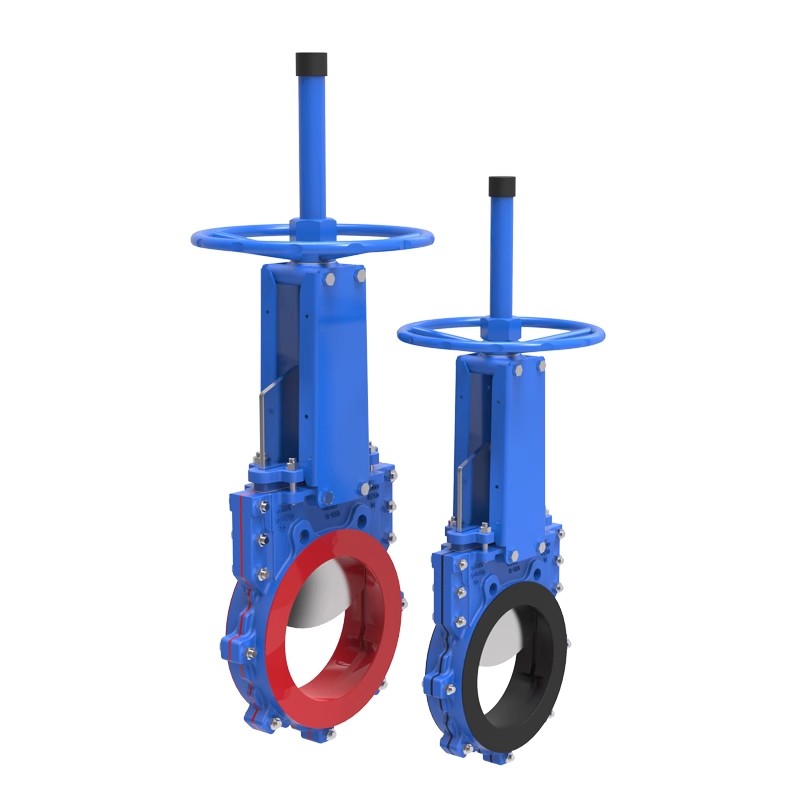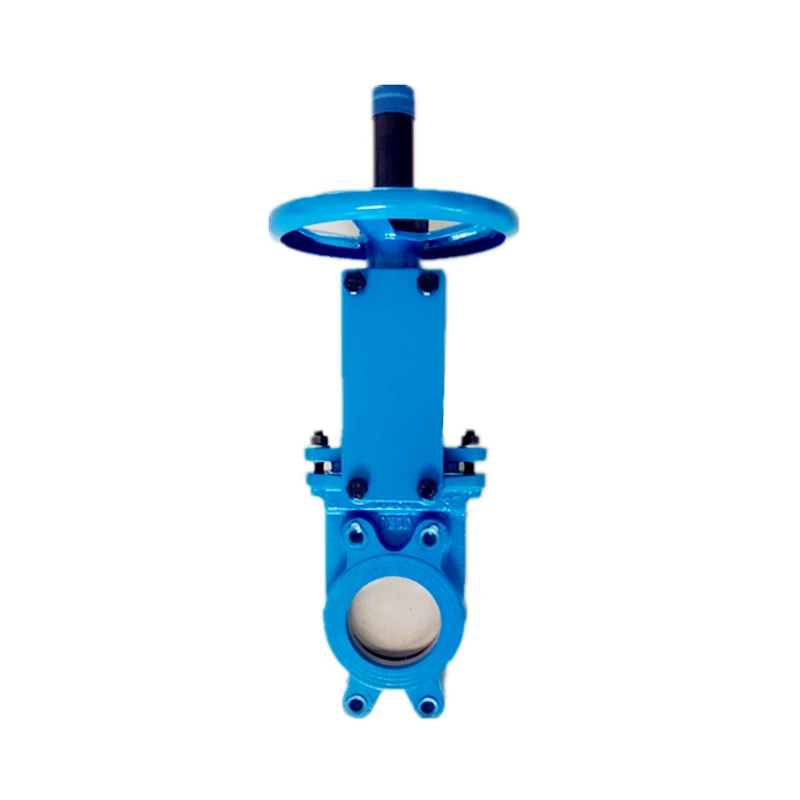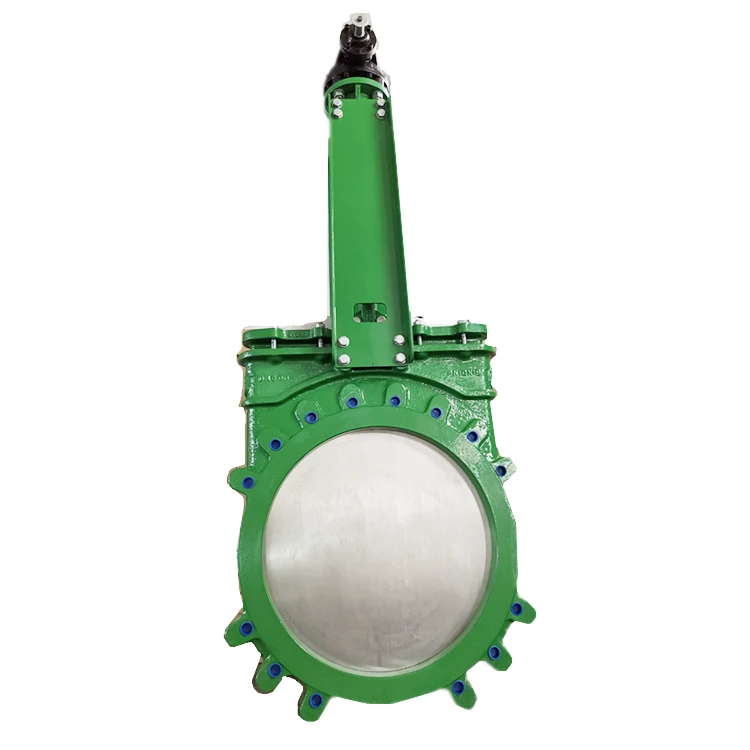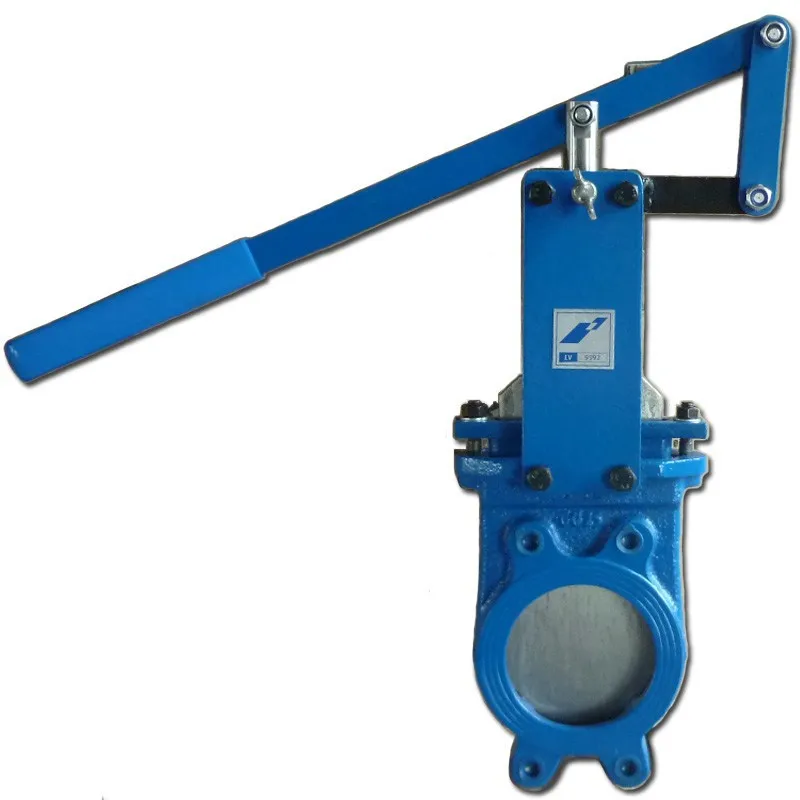Pneumatic and Polyurethane Knife Gate Valves for Industrial Use
Key Takeaways
Pneumatic operated knife gate valves are integral components in various industrial applications, offering unparalleled reliability for the control of flow in pipelines. Their design permits efficient flow regulation while minimizing pressure loss. These valves are powered through pneumatic actuation, enabling rapid opening and closing cycles, which is essential in processes requiring swift response times. The pneumatic-actuated knife gate valves exhibit enhanced operational efficiency compared to manual alternatives, drastically reducing the labor and time required for valve manipulation.
The polyurethane knife gate valves feature a robust construction that enhances durability. The polyurethane lining offers excellent resistance against abrasion and wear, making these valves particularly suitable for handling slurries or other solid-laden fluids. Cross-contamination is minimized due to the intrinsic properties of the material, ensuring higher reliability in demanding applications.
Integration of PTFE lined knife gate valves takes performance a step further by providing exceptional chemical resistance. These valves excel in environments where corrosive substances are present, without compromising on operational integrity. The PTFE lining serves an important function by reducing friction during actuation while also protecting the valve from chemical interactions that can lead to premature failure.
Manufacturers choosing between pneumatic-actuated and manual knife gate valves must weigh factors such as operational efficiency, maintenance needs, and environmental conditions. While pneumatic options stand out due to their quick response capabilities and reduced physical labor requirements, manual counterparts may still provide advantages in simplicity and cost-effectiveness under certain circumstances.
The selection of the appropriate valve type is crucial to achieving optimal performance within specific industrial processes. Considering factors such as material composition, type of fluid handled, and required maintenance can lead to improved system efficiency and enhanced lifespan of components within an industrial setting.
Pneumatic Operated Knife Gate Valves: Key Features and Benefits
Pneumatic operated knife gate valves are essential components in various industrial processes, primarily designed for applications involving the handling of slurries, solids, and liquids. These valves utilize a pneumatic actuator to enable quick opening and closing, offering enhanced operational efficiency. One of the key benefits of pneumatic-actuated knife gate valves is their ability to provide a tight seal when closed, preventing leakage and ensuring process integrity. Their design allows for smooth operation even under high-pressure conditions, which is critical in sectors such as wastewater treatment, mining, and chemical processing.
The actuation mechanism of these valves results in rapid response times compared to manually operated options. Integration of polyurethane knife gate valves enhances their performance by delivering additional durability and chemical resistance, allowing them to withstand harsh environments without compromising functionality. Furthermore, the various options available—including models with PTFE lined knife gates—provide tailored solutions for specific applications. This versatility makes them an excellent choice for industries that require reliable and efficient flow control solutions.
Long-term performance is another significant advantage; these valves are engineered to last while minimizing maintenance needs. This reliability assures operators that processes will run smoothly with decreased downtime due to valve failures. Additionally, the compact design of knife gate valves facilitates installation in confined spaces commonly found in industrial settings. The combination of these features positions pneumatic operated knife gate valves as an indispensable asset for any operation seeking efficiency and reliability in fluid management.
Polyurethane Knife Gate Valves: Durability and Chemical Resistance
Polyurethane knife gate valves offer exceptional durability and outstanding chemical resistance, making them ideal for various industrial applications. The robust nature of polyurethane, combined with its excellent wear properties, enables these valves to withstand harsh environments and aggressive media. They maintain their integrity under extreme operating conditions, which is critical for reliable flow control in industries such as wastewater treatment, chemical processing, and mining. The ability to resist corrosion from a wide range of chemicals enhances their versatility. Operators benefit from reduced maintenance costs and longer service life due to the high performance of these valves against abrasion. Furthermore, the lightweight design simplifies installation and operation while ensuring efficient sealing capabilities against leakage. Choosing polyurethane knife gate valves means investing in reliability and efficiency that meet rigorous industrial demands.
PTFE Lined Knife Gate Valves: Applications and Performance
PTFE lined knife gate valves have gained significant traction in industrial applications due to their superior chemical resistance and high-performance characteristics. These valves are particularly well-suited for environments where corrosive materials are handled, ensuring that the fluid does not react with the internal surfaces of the valve. Their design facilitates quick and efficient operation, making them ideal for pneumatic operated knife gate valves that require automation.
The PTFE lining serves as a barrier between the valve body and the fluid, which minimizes wear and extends the lifespan of the valve. Industries such as chemical processing, water treatment, and food production benefit from these features, where maintaining purity and integrity of substances is crucial. Table 1 below illustrates some typical applications along with key performance indicators:
Application | Key Performance Indicator | Benefit |
|---|---|---|
Chemical Processing | Chemical Resistance | Protection against corrosion |
Water Treatment | Flow Control Efficiency | Improved operational reliability |
Food Production | Hygiene Standards | Compliance with safety regulations |
"Selecting a valve that meets specific industrial needs can significantly enhance productivity."
PTFE lined knife gate valves support continuous operation in severe environments, ensuring that maintenance downtime is minimized. The ability to withstand extreme temperatures without degrading makes them an indispensable component in many systems. Additionally, the smooth surface of PTFE facilitates easy cleaning and maintenance, resulting in reduced operational costs over time.

Comparative Analysis of Pneumatic-Actuated and Manual Knife Gate Valves
The choice between pneumatic operated knife gate valves and manual counterparts is crucial for optimizing industrial operations. Pneumatic-actuated knife gate valves offer enhanced automation, providing rapid and precise control of fluid flow. This feature significantly reduces the response time in process operations, making them ideal for applications requiring immediate action, such as shutoff in emergency situations. The automation of these valves often leads to reduced labor costs and minimized human error.
In contrast, manual knife gate valves necessitate human intervention for operation. While they may provide reliability in simpler systems where remote control is unnecessary, the necessity for manual operation can introduce delays. Moreover, the risk of operator fatigue or operational mistakes might compromise safety and efficiency, particularly in high-demand environments.
The materials used in the construction of these valves also play a pivotal role. Pneumatic-actuated knife gate valves are often designed with robust materials that withstand harsh conditions, while options such as polyurethane knife gate valves and PTFE lined knife gate valves enhance durability and chemical resistance.
In applications where precise control is paramount, pneumatic actuation presents a clear advantage over manual alternatives. This analysis underscores the importance of considering process demands when selecting between these two types of valve systems to achieve operational excellence in various industrial applications.
Conclusion
Pneumatic operated knife gate valves have emerged as essential components in numerous industrial applications due to their outstanding reliability and efficiency. Leveraging pneumatic actuation allows for rapid opening and closing, which is crucial in processes requiring precise control of flow and pressure. These valves are designed to handle harsh conditions, making them suitable for various substances, including slurries and aggressive chemicals. Among the available options, the polyurethane knife gate valve stands out for its exceptional durability and resistance to wear, ensuring a long service life even in demanding environments. Additionally, PTFE lined knife gate valves provide enhanced chemical resistance, making them ideal for industries where corrosive materials are prevalent. The choice between pneumatic actuated and manual knife gate valves heavily depends on operational requirements. By incorporating these advanced valve systems into industrial operations, businesses can achieve improved performance, reduced maintenance costs, and enhanced safety measures. The ongoing evolution of valve technology continues to support diverse applications across various sectors, solidifying their significance in modern industrial processes.
FAQs
What is a pneumatic operated knife gate valve?
A pneumatic operated knife gate valve is a type of valve that uses compressed air to open and close the gate, allowing for precise control over fluid flow in industrial applications. Their design enables them to handle large volumes of solids and liquids, making them ideal for harsh environments.
What are the advantages of using polyurethane knife gate valves?
Polyurethane knife gate valves exhibit exceptional durability and provide superior chemical resistance, which allows them to handle aggressive materials effectively. This contributes to their longer service life and reduces maintenance costs in various industrial settings.
When should one consider using PTFE lined knife gate valves?
PTFE lined knife gate valves are optimal for applications involving corrosive substances due to their non-reactive nature. They offer excellent durability and reliability, ensuring safety and performance in industries such as petrochemicals and pharmaceuticals.
How do pneumatic-actuated knife gate valves compare with manual versions?
Compared to manual versions, pneumatic-actuated knife gate valves provide faster operation and can be integrated into automated systems for improved efficiency. They eliminate the need for manual intervention, reducing operator fatigue while enhancing safety.
What industries benefit most from these types of valves?
Industries such as wastewater treatment, mining, and chemical manufacturing benefit significantly from pneumatic operated, polyurethane, and PTFE lined knife gate valves, utilizing their




